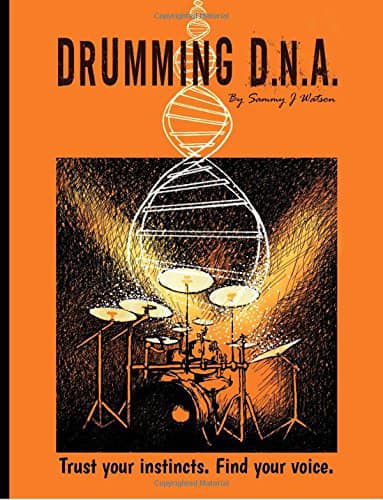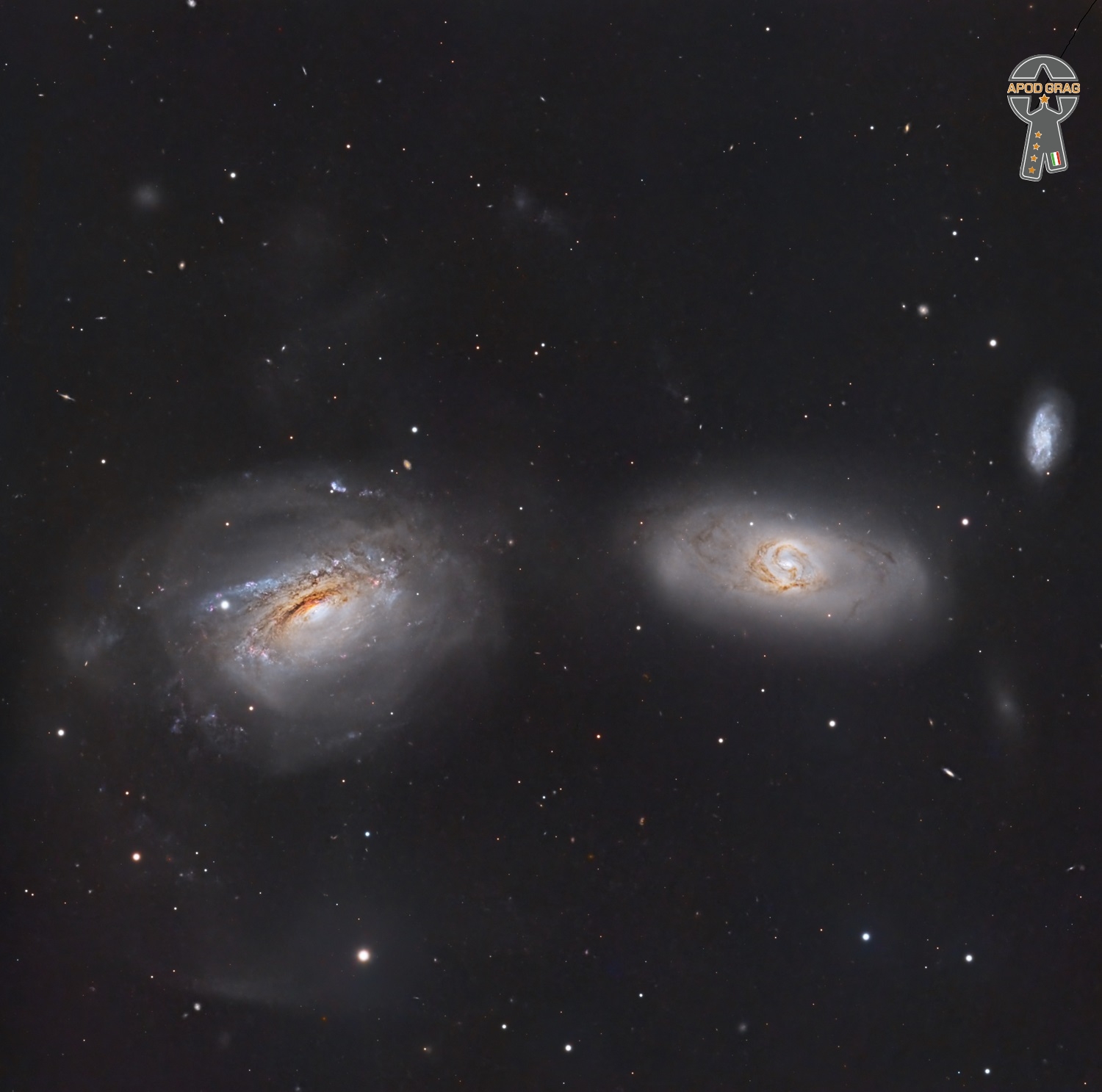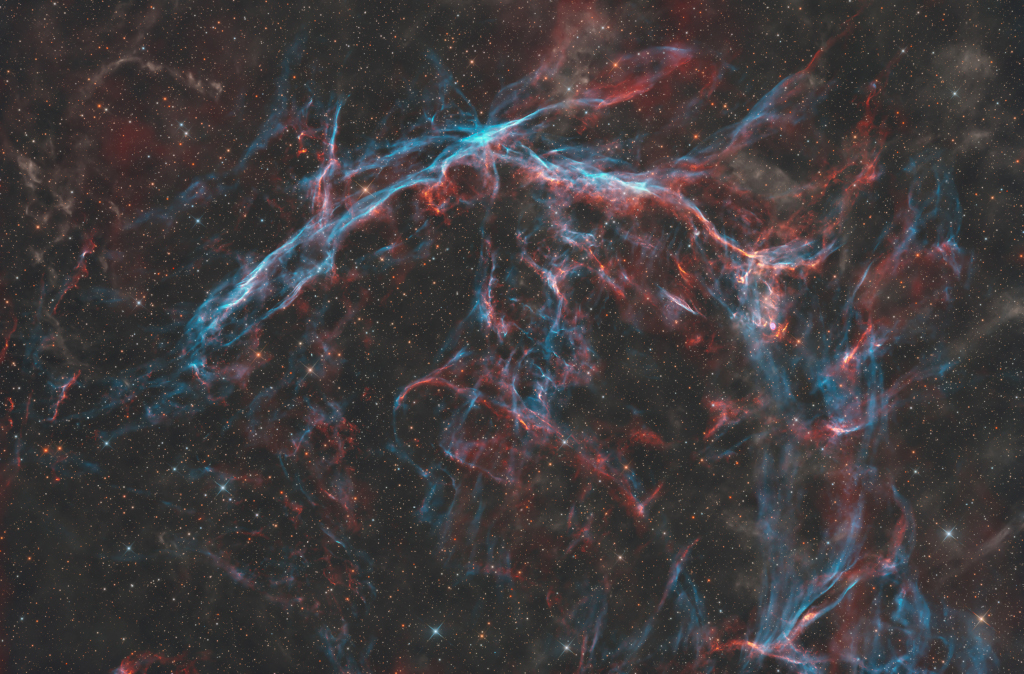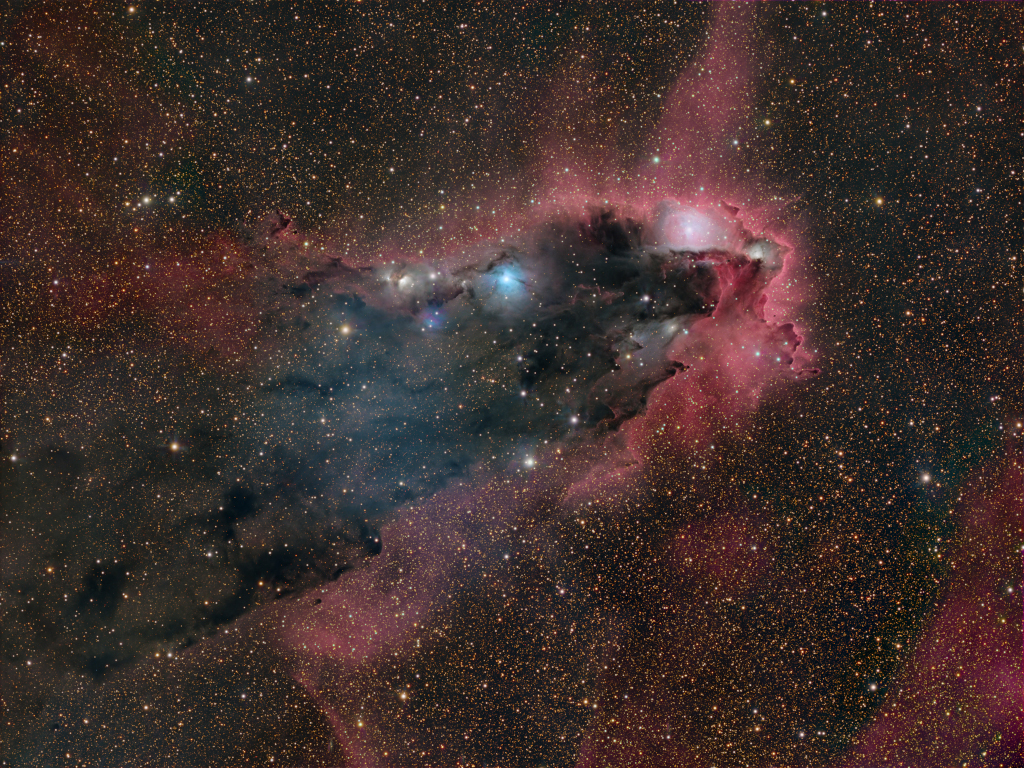Blog
August 24th 2022 Spoke on MPR this morning about music and healing. They quoted me. Music & drumming are deeply embedded in our ancient DNA! Memory loss patients when participating in drumming develop an incredible sense of recall. Bravo!

NGC 3169 is a spiral galaxy about 75 million light years away in the constellationSextans. It has the morphological classification SA(s)a pec, which indicates this is a pure, unbarred spiral galaxy with tightly-wound arms and peculiar features. There is an asymmetrical spiral arm and an extended halo around the galaxy. It is a member of the NGC 3166 Group of galaxies, which is a member of the Leo II Groups, a series of galaxies and galaxy clusters strung out from the right edge of the Virgo Supercluster.
NGC 3169 is located in close physical proximity to NGC 3166, and the two have an estimated separation of around 160 kly (50 kpc). Their interaction is creating a gravitational distortion that has left the disk of NGC 3166 warped. Combined with NGC 3156, the three galaxies form a small group within the larger Leo 1 group. The three are embedded within an extended ring of neutral hydrogen that is centered on NGC 3169.

more...
John Cipollina (August 24, 1943 – May 29, 1989) was a guitarist best known for his role as a founder and the lead guitarist of the prominent San Francisco rock band Quicksilver Messenger Service. After leaving Quicksilver he formed the band Copperhead, was a member of the San Francisco All Stars and later played with numerous other bands.
Cipollina had a unique guitar sound, mixing solid state and vacuum-tube (valve) amplifiers as early as 1965. He is considered one of the fathers of the San Francisco sound, a form of psychedelic rock.
I like the rapid punch of solid-state for the bottom, and the rodent-gnawing distortion of the tubes on top.
To create his distinctive guitar sound, Cipollina developed a one-of-a-kind amplifier stack. His Gibson SG guitars had two pickups, one for bass and one for treble. The bass pickup fed into two Standel bass amps on the bottom of the stack, each equipped with two 15-inch speakers. The treble pickups fed two Fender amps: a Fender Twin Reverb and a Fender Dual Showman that drove six Wurlitzer horns. Cipollina died on May 29, 1989 at age 45. His cause of death was alpha-1 antitrypsin deficiency, which he suffered from most of his life and which is exacerbated by smoking.
more...Bartolomé Maximiliano Moré Gutiérrez (24 August 1919 – 19 February 1963), better known as Benny Moré (also spelled Beny Moré), was a Cuban singer, bandleader and songwriter. Due to his fluid tenor voice and his great expressivity, he was known variously as “El Bárbaro del Ritmo” and “El Sonero Mayor”. Moré was a master of the soneo – the art of vocal improvisation in son cubano – and many of his tunes developed this way. He often took part in controversias (vocal duels) with other singers, including Cheo Marquetti and Joseíto Fernández. Apart from son cubano, Moré was a popular singer of guarachas, cha cha cha, mambo, son montuno, and boleros.
Moré started his career with the Trío Matamoros in the 1940s and after a tour in Mexico he decided to stay in the country. Both Moré and dancer Ninón Sevilla made their cinematic debut in 1946’s Carita de cielo, but Moré focused on his music career. In the late 1940s, he sang guaracha-mambos with Pérez Prado, achieving great success. Moré returned to Cuba in 1952 and worked with Bebo Valdés and Ernesto Duarte. In 1953, he formed the Banda Gigante, which became one of the leading Cuban big bands of the 1950s. He suffered from alcoholism and died of liver cirrhosis in 1963 at the age of 43.
more...Arthur William “Big Boy” Crudup (August 24, 1905 – March 28, 1974) was an American Delta blues singer, songwriter and guitarist. He is best known, outside blues circles, for his songs “That’s All Right” (1946),[2] “My Baby Left Me” and “So Glad You’re Mine”, later recorded by Elvis Presley and other artists.
Crudup was born on August 24, 1905, in Union Grove, Forest, Mississippi, to a family of migrant workers traveling through the South and Midwest. The family returned to Mississippi in 1926, where he sang gospel music. He had lessons with a local bluesman, whose name was Papa Harvey, and later he was able to play in dance halls and cafes around Forest. Around 1940 he went to Chicago.
He began his career as a blues singer around Clarksdale, Mississippi. As a member of the Harmonizing Four, he visited Chicago in 1939. He stayed in Chicago to work as a solo musician but barely made a living as a street singer. The record producer Lester Melrose allegedly found him while Crudup was living in a packing crate, introduced him to Hudson Whittaker, better known as Tampa Red, and signed him to a recording contract with RCA Victor‘s Bluebird label.
more...Claude Driskett Hopkins (August 24, 1903 – February 19, 1984) was an American jazz stride pianist and bandleader.
Claude Hopkins was born in Alexandria, Virginia, United States. Historians differ in respect of the actual date of his birth. His parents were on the faculty of Howard University. A talented stride piano player and arranger, he left home at the age of 21 to become a sideman with the Wilbur Sweatman Orchestra, but stayed less than a year. In 1925, he left for Europe as the musical director of The Revue Negre which starred Josephine Baker[4] with Sidney Bechet in the band.
He returned to the US in 1927 where, based in Washington, D.C., he toured the Theatre Owners Booking Association circuit with The Ginger Snaps Revue, before heading once again for New York City where he took over the band of Charlie Skeets. At this time (1932–36), he led a Harlem band employing jazz musicians such as Edmond Hall, Jabbo Smith and Vic Dickenson (although his records were arranged to feature his piano more than his band). This was his most successful period, with long residencies at the Savoy and Roseland ballrooms and at the Cotton Club. In 1937, he took his band on the road with a great deal of success.
more...Erev Shabbat Service Friday August 23rd with Inbal Sharett-Singer, Jayson Rodovsky, Jeff Bailey, Pete Whitman and mick laBriola.
more...
There is a quiet pulsar at the heart of CTA 1. The supernova remnant was discovered as a source of emission at radio wavelengths by astronomers in 1960 and since identified as the result of the death explosion of a massive star. But no radio pulses were detected from the expected pulsar, the rotating neutron star remnant of the massive star’s collapsed core. Seen about 10,000 years after the initial supernova explosion, the interstellar debris cloud is faint at optical wavelengths. CTA 1’s visible wavelength emission from still expanding shock fronts is revealed in this deep telescopic image, a frame that spans about 2 degrees across a starfield in the northern constellation of Cepheus. While no pulsar has since been found at radio wavelengths, in 2008 the Fermi Gamma-ray Space Telescope detected pulsed emission from CTA 1, identifying the supernova remnant’s rotating neutron star. The source has been recognized as the first in a growing class of pulsars that are quiet at radio wavelengths but pulse in high-energy gamma-rays. 4600ly.

more...
Keith John Moon (23 August 1946 – 7 September 1978) was an English musician who was the drummer for the rock band the Who. Regarded as one of the greatest drummers in the history of rock music, he was noted for his unique style of playing and his eccentric, often self-destructive behaviour.
Moon grew up in Wembley and took up the drums during the early 1960s. After playing with a local band, the Beachcombers, he joined the Who in 1964 before they recorded their first single. Moon was recognised for his drumming style, which emphasised tom-toms, cymbal crashes, and drum fills. Throughout his tenure with the Who, his drum kit steadily grew in size, and (along with Ginger Baker) he has been credited as one of the earliest rock drummers to regularly employ double bass drums in his setup. Moon occasionally collaborated with other musicians and later appeared in films, but considered playing in the Who his primary occupation, and remained a member of the band until his death. In addition to his talent as a drummer, Moon developed a reputation for smashing his kit on stage and destroying hotel rooms on tour. He was fascinated with blowing up toilets with cherry bombs or dynamite, and destroying television sets. Moon also enjoyed touring and socialising, and became bored and restless when the Who were inactive. His 21st birthday party in Flint, Michigan, has been cited as a notorious example of decadent behaviour by rock groups.
Moon suffered a number of setbacks during the 1970s, most notably the accidental death of chauffeur Neil Boland and the breakdown of his marriage. He suffered from alcoholism and acquired a reputation for decadence and dark humour; his nickname was “Moon the Loon”. While touring with the Who, on several occasions he passed out on stage and was hospitalised. By the time of their final tour with him in 1976, and particularly during production of The Kids Are Alright and Who Are You, the drummer’s deterioration was evident. Moon moved back to London from Los Angeles in 1978, dying that September from an overdose of clomethiazole, a drug intended to treat or prevent symptoms of alcohol withdrawal.
Moon’s drumming continues to be praised by critics and musicians. He was posthumously inducted into the Modern Drummer Hall of Fame in 1982, becoming the second rock drummer to be chosen, and in 2011 he was voted the second-greatest drummer in history by a Rolling Stone readers’ poll. Moon was inducted into the Rock and Roll Hall of Fame in 1990 as a member of the Who. On 6 September, Moon and Walter-Lax were guests of Paul and Linda McCartney at a preview of a film, The Buddy Holly Story. After dining with the McCartneys at Peppermint Park in Covent Garden, Moon and Walter-Lax returned to their flat. He watched a film (The Abominable Dr. Phibes), and asked Walter-Lax to cook him lamb cutlets (which Walter-Lax had stated was his favourite meal). When she objected, Moon replied, “If you don’t like it, you can fuck off!” These were his last words. Moon then took some clomethiazole tablets. When Walter-Lax checked on him the following afternoon, she discovered he was dead.
more...Terje Rypdal (born 23 August 1947) is a Norwegian guitarist and composer. He has been an important member in the Norwegian jazz community, and has also given show concerts with guitarists Ronni Le Tekrø and Mads Eriksen as “N3”.
Rypdal was born in Oslo, Norway, the son of a composer and orchestra leader. He studied classical piano and trumpet as a child, and then taught himself to play guitar as he entered his teens. Starting out as a Hank Marvin-influenced rock guitarist with The Vanguards, Rypdal turned towards jazz in 1968 and joined Jan Garbarek‘s group and later George Russell‘s sextet and orchestra. An important step towards international attention was his participation in the free jazz festival in Baden-Baden, Germany, in 1969, where he was part of a band led by Lester Bowie. During his musical studies at Oslo university and conservatory, he led the orchestra of the Norwegian version of the musical Hair. He has often been recorded on the ECM record label, both jazz-oriented material and classical compositions (some of which do not feature Rypdal’s guitar).
His compositions “Last Nite” and “Mystery Man” were featured in the Michael Mann film Heat, and included on the soundtrack of the same name.
more...The essential form of soleares is the essential form for many palos:
1) A guitar introduction that sets the mood, key and tempo of the piece.
2) A temple/salida, in which the singer uses simple syllables to tune into the guitar and fix the tempo.
3) Two or three sung letras, generally interspersed with falsetas by the guitarist.
4) If a dancer is part of the performance, the dancer will interpret the letras lyyically and rhythmically, and will perform an escobilla or even several escobillas, footwork sections at a faster tempo, accompanied by a standardized series of arpeggios on the guitar.
5) A dance, guitar or cante performance may also include a macho, a transition to a faster form with the same basic underlying compás. It is a common practice to transition directly into bulerías, or to soléa por bulerías transitioning into bulerías
more...In silhouette against a crowded star field along the tail of the arachnological constellation Scorpius, this dusty cosmic cloud evokes for some the image of an ominous dark tower. In fact, monstrous clumps of dust and molecular gas collapsing to form stars may well lurk within the dark nebula, a structure that spans almost 40 light-years across this gorgeous telescopic portrait. A cometary globule, the swept-back cloud is shaped by intense ultraviolet radiation from the OB association of very hot stars in NGC 6231, off the upper right corner of the scene. That energetic ultraviolet light also powers the globule’s bordering reddish glow of hydrogen gas. Hot stars embedded in the dust can be seen as bluish reflection nebulae. This dark tower and associated nebulae are about 5,000 light-years away.

more...
Delmar Allen “Dale” Hawkins (August 22, 1936 – February 13, 2010) was a pioneer American rock singer, songwriter, and rhythm guitarist who was often called the architect of swamp rock boogie.
He began recording in 1956. In 1957, Hawkins was playing at Shreveport, Louisianaclubs, and although his music was influenced by the new rock and roll style of Elvis Presley and the guitar sounds of Scotty Moore, Hawkins blended that with the uniquely heavy blues sound of black Louisiana artists for his recording of his swamp-rock classic, “Susie Q.” Fellow Louisiana guitarist and future Rock and Roll Hall of Famer James Burton provided the signature riff and solo.
more...Malachi Favors (August 22, 1927 – January 30, 2004) was an American jazz bassist who played with the Art Ensemble of Chicago.
“Favors’s tendency to dissemble about his age was a well-known source of mirth to fellow musicians of his generation”. Most reference works give his year of birth of 1937, but, following his death, his daughter stated that it was 1927.
Favors primarily played the double bass, but also played the electric bass guitar, banjo, zither, gong, and other instruments. He began playing double bass at the age of 15 and began performing professionally upon graduating from high school. Early performances included work with Dizzy Gillespie and Freddie Hubbard. By 1965, he was a founder of the Association for the Advancement of Creative Musicians and a member of Muhal Richard Abrams‘ Experimental Band.
At some point he added the word “Maghostut” to his name and because of this he is commonly listed as “Malachi Favors Maghostut”. Musically he is most associated with bebop, hard bop, and particularly free jazz.
more...Sonny Thompson (probably August 23, 1916 – August 11, 1989), born Alfonso Thompson or Hezzie Tompson, was an American R&B bandleader and pianist, popular in the 1940s and 1950s.
There is some uncertainty over Thompson’s origins, as well as his birth name. Researchers Bob Eagle and Eric LeBlanc indicate that he was born in 1916 in Wilkinson County, Mississippi, but other sources state that he was born in 1923, either in Mississippi or in Chicago.
more...John Lee Hooker (August 22, 1912 or 1917 – June 21, 2001 Clarksdale, MS) was an American blues singer, songwriter, and guitarist. The son of a sharecropper, he rose to prominence performing an electric guitar-style adaptation of Delta blues that he developed in Detroit. Hooker often incorporated other elements, including talking blues and early North Mississippi hill country blues. He developed his own driving-rhythm boogie style, distinct from the 1930s–1940s piano-derived boogie-woogie. Hooker was ranked 35 in Rolling Stone‘s 2015 list of 100 greatest guitarists, and has been cited as one of the greatest male blues vocalists of all time.
Some of his best known songs include “Boogie Chillen’” (1948), “Crawling King Snake” (1949), “Dimples” (1956), “Boom Boom” (1962), and “One Bourbon, One Scotch, One Beer” (1966). Several of his later albums, including The Healer (1989), Mr. Lucky (1991), Chill Out (1995), and Don’t Look Back (1997), were album chart successes in the U.S. and UK. The Healer (for the song “I’m in the Mood”) and Chill Out (for the album) both earned him Grammy wins, as well as Don’t Look Back, which went on to earn him a double-Grammy win for Best Traditional Blues Recording and Best Pop Collaboration with Vocals (with Van Morrison).
more...(Achille) Claude Debussy ( 22 August 1862 – 25 March 1918) was a French composer. He is sometimes seen as the first Impressionist composer, although he vigorously rejected the term. He was among the most influential composers of the late 19th and early 20th centuries.
Born to a family of modest means and little cultural involvement, Debussy showed enough musical talent to be admitted at the age of ten to France’s leading music college, the Conservatoire de Paris. He originally studied the piano, but found his vocation in innovative composition, despite the disapproval of the Conservatoire’s conservative professors. He took many years to develop his mature style, and was nearly 40 when he achieved international fame in 1902 with the only opera he completed, Pelléas et Mélisande.
Debussy’s orchestral works include Prélude à l’après-midi d’un faune (1894), Nocturnes (1897–1899) and Images (1905–1912). His music was to a considerable extent a reaction against Wagner and the German musical tradition. He regarded the classical symphony as obsolete and sought an alternative in his “symphonic sketches”, La mer (1903–1905). His piano works include sets of 24 Préludes and 12 Études. Throughout his career he wrote mélodies based on a wide variety of poetry, including his own. He was greatly influenced by the Symbolist poetic movement of the later 19th century. A small number of works, including the early La Damoiselle élue and the late Le Martyre de saint Sébastien have important parts for chorus. In his final years, he focused on chamber music, completing three of six planned sonatas for different combinations of instruments.
With early influences including Russian and Far Eastern music and works by Chopin, Debussy developed his own style of harmony and orchestral colouring, derided – and unsuccessfully resisted – by much of the musical establishment of the day. His works have strongly influenced a wide range of composers including Béla Bartók, Olivier Messiaen, George Benjamin, and the jazz pianist and composer Bill Evans. Debussy died from cancer at his home in Paris at the age of 55 after a composing career of a little more than 30 years.
more...More Posts
- The Cosmos with Trapezium Cluster
- Stanley Clarke Day
- Andrew Hill Day
- World Music with Nico Kasanda
- Daily Roots with Hortense Ellis
- The Cosmos with M24
- Gilberto Gil Day
- Julian Priester Day
- World Music with Paco De Lucia
- Daily Roots with Alton Ellis & the Heptones
- The Cosmos with Sharpless 2-106
- John Medeski Day
- David Honeyboy Edwards Day
- World Music with Odpoczno
- Daily Roots with Ras Tweed
- The Cosmos with M8
- Johnny “Big Moose” Walker Day
- Elmo Hope Day
- Shad Collins Day
- World Music with Eleftheria Arvanitaki